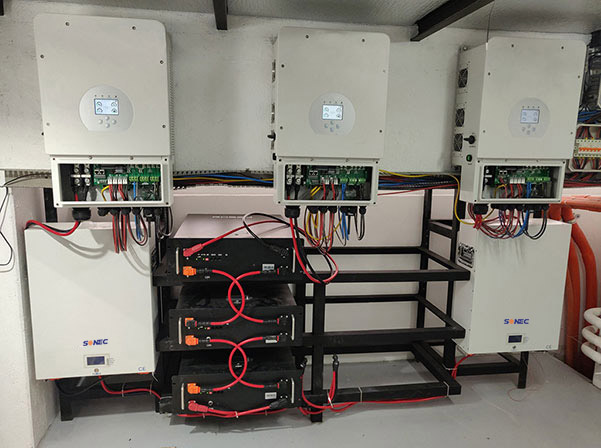The future of home battery storage systems is promising, with the following trends
 Technological Advancements
Technological Advancements
• Higher Energy Density: The energy density of home batteries is expected to increase. This enables storing more energy in a smaller space, meeting household energy needs more effectively. For example, the new Powerwall 3 has a higher power output and can be interconnected to achieve a large battery capacity.
• Improved Efficiency: As technology progresses, home battery systems will become more efficient. The energy loss during charging and discharging will be reduced, optimizing energy utilization.
• Widespread Use of New Batteries: Solid - state batteries and lithium - iron - phosphate batteries will be increasingly used in home energy storage. Solid - state batteries have a higher energy density and a lower self - discharge rate, while lithium - iron - phosphate batteries are known for their high safety, long lifespan, and low cost.
Intelligent Management
• Real - time Monitoring and Control: Leveraging IoT technology, users can monitor the status of home energy systems in real - time via mobile apps and control power usage and distribution. AI algorithms will enable the system to automatically adjust power usage strategies based on users' living habits, reducing energy waste.
• Seamless Integration with Smart Home Devices: Home energy storage systems will integrate with smart home devices such as thermostats, smart bulbs, and EV charging stations, creating an efficient and eco - friendly home energy ecosystem.
Market and Policy Environment
• Growing Market Demand: With the increase in the use of renewable energy sources such as solar and wind power, as well as the growing popularity of electric vehicles, the demand for home battery storage systems will continue to rise.
• Strong Policy Support: Governments worldwide are actively promoting the use of renewable energy and introducing subsidy policies to encourage households to install storage systems. For example, the U.S. federal investment tax credit policy and Germany's KFW low - interest loan program have spurred the development of the storage market.
System Standardization and Popularization
As technology advances and the market matures, home energy storage systems will become more standardized and widespread. In the next decade, home energy storage is expected to become a standard feature in new residential buildings, and upgrading storage systems in existing homes will also become a trend. Additionally, the development of energy blockchain technology will allow users to conduct decentralized energy trading, enhancing the economic benefits of home energy storage systems.

